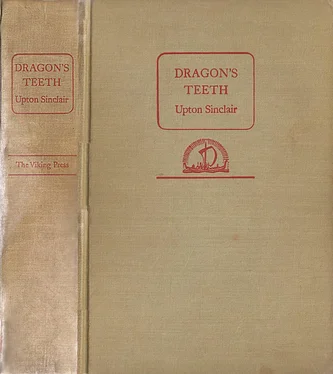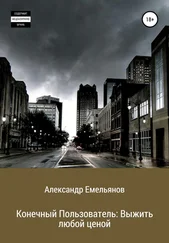Пользователь - o 3b3e7475144cf77c
Здесь есть возможность читать онлайн «Пользователь - o 3b3e7475144cf77c» весь текст электронной книги совершенно бесплатно (целиком полную версию без сокращений). В некоторых случаях можно слушать аудио, скачать через торрент в формате fb2 и присутствует краткое содержание. Жанр: Старинная литература, на русском языке. Описание произведения, (предисловие) а так же отзывы посетителей доступны на портале библиотеки ЛибКат.
- Название:o 3b3e7475144cf77c
- Автор:
- Жанр:
- Год:неизвестен
- ISBN:нет данных
- Рейтинг книги:4 / 5. Голосов: 1
-
Избранное:Добавить в избранное
- Отзывы:
-
Ваша оценка:
- 80
- 1
- 2
- 3
- 4
- 5
o 3b3e7475144cf77c: краткое содержание, описание и аннотация
Предлагаем к чтению аннотацию, описание, краткое содержание или предисловие (зависит от того, что написал сам автор книги «o 3b3e7475144cf77c»). Если вы не нашли необходимую информацию о книге — напишите в комментариях, мы постараемся отыскать её.
o 3b3e7475144cf77c — читать онлайн бесплатно полную книгу (весь текст) целиком
Ниже представлен текст книги, разбитый по страницам. Система сохранения места последней прочитанной страницы, позволяет с удобством читать онлайн бесплатно книгу «o 3b3e7475144cf77c», без необходимости каждый раз заново искать на чём Вы остановились. Поставьте закладку, и сможете в любой момент перейти на страницу, на которой закончили чтение.
Интервал:
Закладка:
note to report the situation. It suggests to me that Freddi may be dead; but I don't say it to the
Robins."
VI
Hard times were producing in France the same effects they had produced in Germany; and
now the political pot boiled over, making a nasty mess. It was the "Stavisky case," centering
about a swindler of Russian-Jewish descent. "Too bad he had to be a Jew!" said Irma, and Lanny
wasn't sure whether she was being sympathetic or sarcastic. "Handsome Alex," as he was called,
had been engaged in one piece of financial jugglery after another, culminating in a tour de
force which sounded like comic opera—he had promoted an extensive issue of bonds for the
pawnshops of the town of Bayonne! Altogether he had robbed the French public of something
like a billion francs; and it was discovered that he had been indicted for a swindle eight or nine
years previously, and had succeeded in having his trial postponed no less than nineteen times.
Obviously this meant collusion with police and politicians; either he was paying them money or
was in position to blackmail them. When Robbie read the details he said it sounded exactly like
Chicago or Philadelphia.
Stavisky had gone into hiding with his mistress, and when the police came for him he shot
himself; at least, so the police said, but evidence began to indicate that the police had hushed
him up. The Paris newspapers, the most corrupt in the world, printed everything they could find
out and twenty times as much. Two groups were interested in exploiting the scandals: the
parties of the extreme right, the Royalists and Fascists, who wanted to overthrow the Republic
and set up their kind of dictatorship; and the Communists, who wanted a different kind. The
two extremes met, and while vowing the deadliest hatred, they made war on the same
parliamentary system.
Lanny couldn't afford to visit his Red uncle, but he invited Denis de Bruyne to dinner, and the
three Budds listened to the story from the point of view of a French Nationalist. The situation in
the de Bruyne family bore an odd resemblance to that between Robbie and his son. Denis
belonged to a respectable law-and-order party, and was distressed because his younger son had
joined the Croix de Feu, most active of the French Fascist groups. Now Charlot was off
somewhere with his fellows, conspiring to overpower the police and seize control of the
country's affairs. At any moment he and his organization might come out on the streets, and
there would be shooting; the unhappy father couldn't enjoy his dinner, and wanted Lanny to
find the crazy boy and try to bring him to his senses. Such were the duties you got in for when
you chose a lovely French lady for your amie!
Lanny said no; he had tried to influence both boys, and had failed, and now he was out of
politics; he had made a promise to his wife. He listened to the innermost secrets of la
république française, derived from first-hand observation. He learned about Daladier, the
baker's son, who had just become Premier, the fourth within a year; what interests had
subsidized his career, and what noble lady had become his mistress. He learned about Chiappe,
chief of the Paris police, a Corsican known as "the little Napoleon"—he was five feet three inches,
and had just been "fired" for being too intimate with Stavisky. He had known all the wholesale
crooks, the blackmailers and Jewish métèques of France, and had whispered their secrets to
his son-in-law, publisher of one of the great gutter-journals of Paris.
Lanny observed that the individuals who awakened the anger and disgust of Denis de Bruyne
were the climbers, those struggling for Wealth and power to which they had no valid claim. He
rarely had any serious fault to find with the mur d'argent, the members of the "two hundred
families" who had had wealth and power for a long time. They had to pay large sums of money
in these evil days, and the basis of Denis's complaint was not the corruption but the
increasing cost. The politicians demanded larger campaign funds, and at the same time kept
increasing taxes; their idea of economy was to cut the salaries of civil servants—which Denis had
discovered was bad for the taxicab business. To make matters worse, the taxicab drivers were on
strike! Robbie listened sympathetically, and when his friend got through scolding Daladier,
Robbie took a turn at Roosevelt.
VII
Next day Lanny escorted his wife to the Summer Fashion Show. This wasn't a public affair,
but one for the trade; an exhibition of the new styles which the manufacturers intended soon
to release. Irma was invited as a special honor by the fashion artist to whom she entrusted her
social destiny. Lanny went along because, if she endeavored to take an interest in his things,
it was only fair that he should do the same for hers. They sat in a hall with many potted palms,
gazing at a long ramp with dark blue curtains behind it; along the ramp paraded beautiful
and chic young women wearing summer costumes with a strong Japanese flavor, or note, or
atmosphere—the journalists groped about for a metaphor. There were bamboo buttons and
coolie hats; the ladies' gowns had fan-tails like Japanese goldfish, the afternoon costumes had
cut sleeves like kimonos, and the evening wraps had designs resembling Japanese flower
prints.
Among the favored guests at this show was an old friend of Lanny's; Olivie Hellstein, now
Madame de Broussailles, very lovely daughter of Jerusalem whom Emily had picked out as a
proper match for Lanny. That had been some eight years ago, and now Olivie had three or four
children, and had become what you called "maternal," a kinder word than "plump." Words
which have an unpleasant connotation change frequently in the best society, where people try
so hard not to wound one another's feelings.
Olivie was a woman of Irma's type, a brunette with deep coloring, in temperament rather
placid, in manner sedate. They had entertained each other, exchanged visits, and satisfied their
curiosity. Now they talked about having to wear summer clothing with a strong Japanese
flavor, or note, or atmosphere; they would have to wear it, of course—it would never occur to
them to rebel against what the fashion creators decided was the fashion.
Lanny, wishing to be polite, remarked: "We were talking about your family last night. My
father is having a meeting with your father."
"A business matter?" inquired Olivie.
"Mine is trying to persuade yours that he can deliver certain railroad equipment at Brest at a
lower price than it can be manufactured in France."
"It will be pleasant if they become associated," replied the young matron. "My father has a
great admiration for American production methods, and wishes they might be imported into
France."
Pierre Hellstein was a director in the Chemin de Fer du Nord, and controlled one of the
biggest banks in Paris. Robbie had asked Denis about him, and they had discussed this wealthy
Jewish family spread widely over Europe; also the position of the railroad, reputed to be run
down and overloaded with bonds. The Hellsteins didn't have to worry, because the government
covered its deficits; there had been criticism in the Chamber—the French Republic was going
broke in order to protect the railroad bondholders. Denis de Bruyne, who owned some of the
bonds, resented these criticisms as irresponsible and demagogic. As for Olivie, beautiful,
Читать дальшеИнтервал:
Закладка:
Похожие книги на «o 3b3e7475144cf77c»
Представляем Вашему вниманию похожие книги на «o 3b3e7475144cf77c» списком для выбора. Мы отобрали схожую по названию и смыслу литературу в надежде предоставить читателям больше вариантов отыскать новые, интересные, ещё непрочитанные произведения.
Обсуждение, отзывы о книге «o 3b3e7475144cf77c» и просто собственные мнения читателей. Оставьте ваши комментарии, напишите, что Вы думаете о произведении, его смысле или главных героях. Укажите что конкретно понравилось, а что нет, и почему Вы так считаете.




